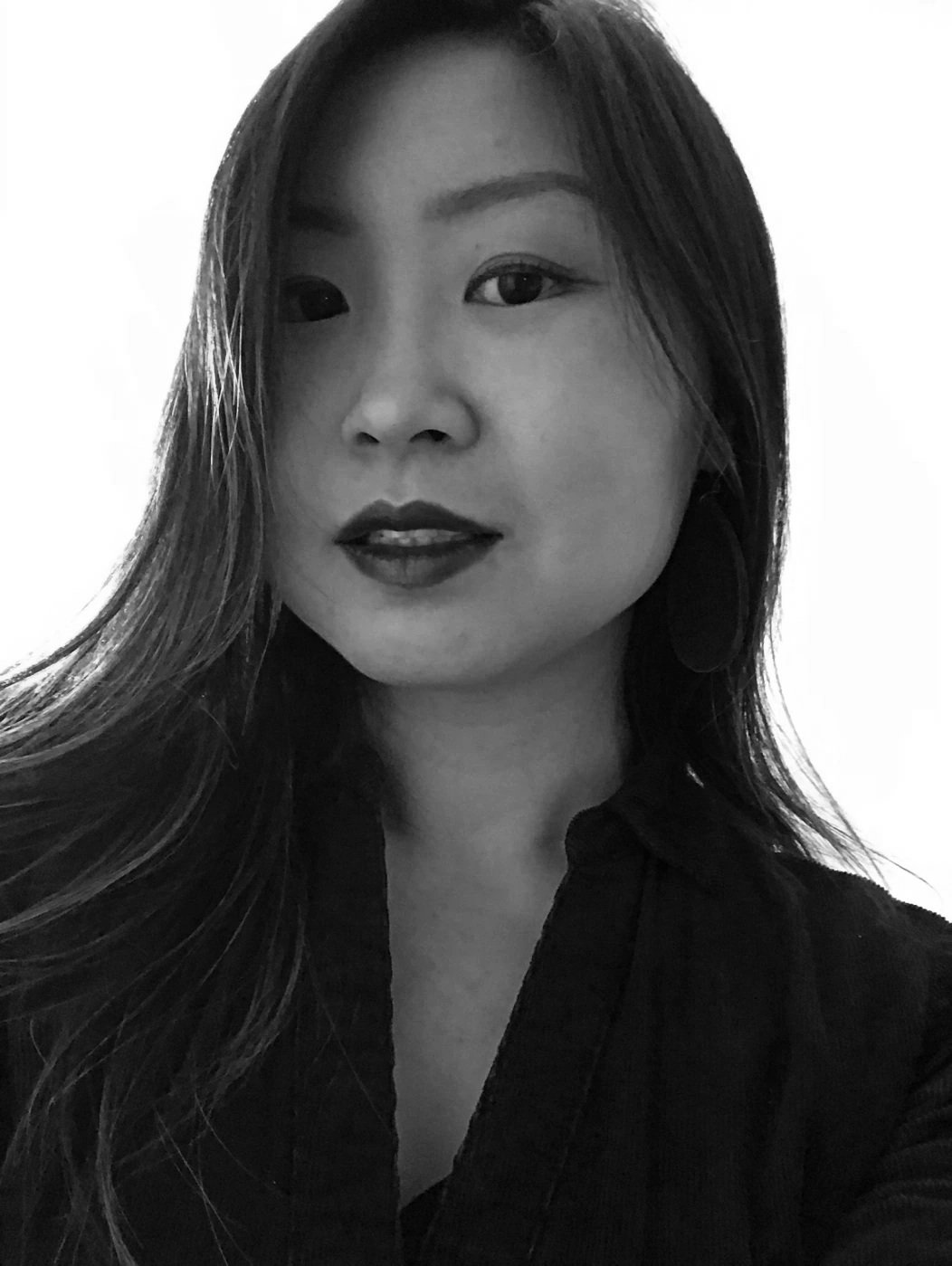Margaret Rhee
I drafted this poem in 2017, a year after Trump was elected. I had feelings—despair, fear, anger. Poems didn’t seem to be able to hold it all, but “Intersectionality” was an attempt. At the time, I had nostalgia for the Bay Area, where in the aughts I came of age. The Bay Area in the 2000s was fiercely queer, anti-racist, and intersectional within the living, loving, and dancing in my communities. By the time I moved away from Berkeley to Los Angeles in 2014, almost all the lesbian bars had closed and artists had moved away due to the second Tech Boom. The Bay became a different space for a new time.
Activists and artists who I love and am still in community with, like Ralowe T. Ampu and others, taught me about building community across race, gender, class, and sexuality. After Trump was elected, I moved from Berkeley to Eugene, Oregon. While the Bay was diverse, Eugene was predominantly white, and people of color were neither familiar nor fully welcome in the predominantly white city. It was in Eugene where I began reflecting on intersectionality more intensely. So I wrote this poem on Facebook one day, where I often wrote poems without much thought for publication nor revision (I’m a terrible submitter). Writing publicly to a group of a thousand friends I know feels more meaningful than privately writing and then publishing the poems for people I do not know. I still do this, but I don’t post on social media as often. In this case, the poem resided there, like so many of my poems, written and tossed digitally aside.
When I began to revise my current poetry manuscript Body Maps, a collection of political poetry inspired by women poets such as Audre Lorde, Adrienne Rich, and Carolyn Forché, I wanted to include “Intersectionality.” The revision turned out differently. I felt that the poem as a block text works for a Facebook status but not necessarily on the page as the lines seemed to ask for more space and movement across the enjambments. In the first version of the poem, the intimacy of intersectionality as a process of learning and care between two people that I wanted to describe didn’t seem to come across. Being aware of intersectionality on a personal and structural level takes work. To help address this, I took more time to remember and describe across bodies and experiences.
When I revised this poem recently in early fall, I thought about the structure and mechanics of an intersection—after all, the feminist term is based on the everyday traffic configuration. Could the mechanical language of an intersection provide some structure to the poem? The newer version is questioning, less sure of herself. I think she is more like what intersectionality is as a process. I’m still not sure if the revised poem works or if it completely betrays the first version. Perhaps that’s what the work of intersectionality and poetry is—a practice of continual revisitation and re-imaginings of what could be.
< DRAFT 1 >
< final version >
intersectionality
An intersection or an at-grade junction is a junction where two or more roads converge, diverge, meet or cross at the same height
Traffic Signal
I don’t see race when I look into your eyes, but I see race when I see the
curvature of your nose. Do you see my nose?
Feel me. Deeper. Without abandon.
I don't ask you about your race when we first fuck. I do not want to.
But I want to understand how you move through the world and how it confronts you, or lets you through.
I want to see you/me.
I want to learn about racism because I want to/you.
Crosswalk
I want to learn about your bank account. I can share the numbers of mine. The legacy of wealth in your family tree. The working class labor in my own and the inheritance I don’t have. The inheritance you decided to give away at 25. Bones break through blue collar work.
Pedestrian Safety Islands
Can I tell you? Will you delight in my skin and call me (Asian) trash? Will I delight in your skin because you do have?
Corner Radii
I admit how I enjoy my designer jeans. I admit I like you most naked, especially your thick thighs.
Coordinated Signal Timing
I want to learn about Palestine, Gaza, anti-Semitism, war, and trauma because though it is not my own, it is your story.
Your story has become part of mine.
I need to see.
__
I pray to our ancestors that as we kiss, we ease more than the tension of our lips into some softness, but we ease the hurt like the edge of a salve. It does not disappear, this pain, but we recognize it. Sometimes that's enough.
Fixed Signalization
I want to feel you as I cup my fingers there, feel your wetness, and please you.
I want us to sleep together, and dream together, even though nightmares of violence seeps into us.
I want to understand our bodies. Hold me. Dance with me. Press your forehead into mine thorough the night. We snore. We sleep. Oh, I love the way you dance. I love the way your chest feels against mine. I love how your crutches move.
Traffic Control
To keep you safe in the bathrooms. I want to take a can of spray paint and X out all gendered signs. I want to protect you. I walk with you and stay outside the stall. I do.
Buttons
Fuck fatphobia and his rules. I love your belly, I love that you see and lick my fat belly with glee and moans.
Cars, Bicyclists, Pedestrians, and Dogs
Walk with me. Sing with me. Tell me about ableism, curb cuts, street lights, and scent sensitivities.
I want to know.
Red Green Yellow
At the intersection, the lights stop and start differently for you and me.
It is my suspicion that race, gender, sexuality, gender, class, ability, and size shape our worlds differently but
we curl into one another as we sleep,
making sense.
Thank you for seeing me.
I'm intent on seeing you too. I want to.


